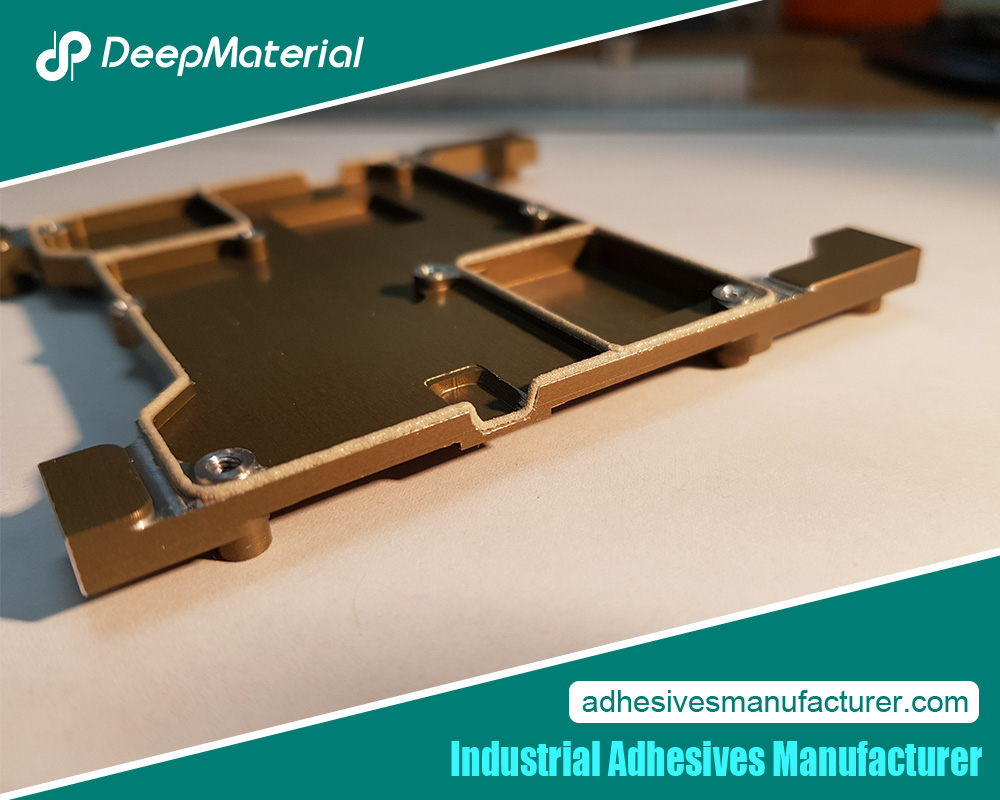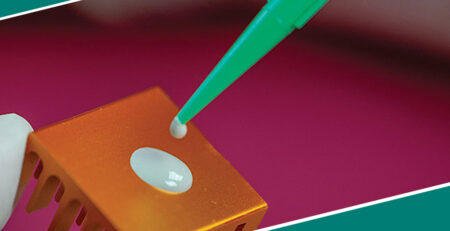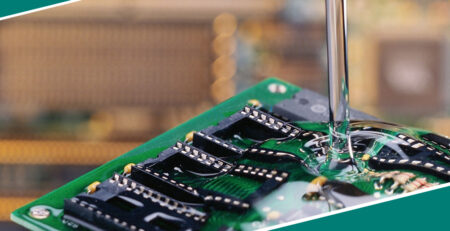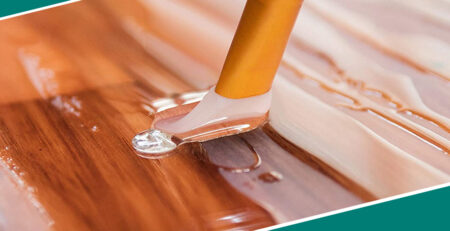Industrial Aerospace Adhesives Suppliers: Key Players, Trends, and Considerations
Industrial Aerospace Adhesives Suppliers: Key Players, Trends, and Considerations
Materials and components are critical in ensuring safety, durability, and performance in the rapidly advancing aerospace industry. Among these materials, adhesives are pivotal in bonding various elements, offering an alternative to traditional fastening methods like welding, bolts, and rivets. The demand for advanced adhesives, especially in the aerospace sector, has grown significantly due to the need for lightweight materials, fuel efficiency, and overall structural integrity.
This article delves into the role of industrial aerospace adhesives suppliers, highlighting their importance, the types of adhesives they offer, current industry trends, and what companies should consider when selecting a supplier.
The Role of Aerospace Adhesives in the Industry
Aerospace adhesives are highly specialized materials that bond components within aircraft, satellites, rockets, and other aerospace systems. Their role goes beyond just sticking things together. These adhesives must endure extreme temperatures, resist vibrations, withstand high pressure, and maintain long-term durability. In modern aircraft construction, reducing the structure’s weight is a significant goal, which is why adhesives are preferred over mechanical fasteners, reducing both weight and complexity.
Adhesives in aerospace applications also contribute to increased fuel efficiency. By using adhesives to bond parts instead of adding mechanical fasteners, aerospace manufacturers can reduce overall aircraft weight, which in turn contributes to fuel savings and lower emissions.
Key Areas Where Aerospace Adhesives Are Used:
- Aircraft Interiors: Adhesives bond panels, flooring, and seating. They must meet strict fire, smoke, and toxicity (FST) regulations.
- Exterior Components: Structural adhesives bond metal, composites, and other materials used in airframes and engines.
- Electronic Components: Aerospace adhesives are also used in avionics, bonding electronic components and protecting against vibrations, moisture, and extreme temperatures.
- Repair and Maintenance: Adhesives are often used to bond or seal damaged parts in the repair and overhaul (MRO) sector.
Types of Aerospace Adhesives
The aerospace industry uses various adhesive formulations, each designed for specific applications. Understanding the types of adhesives suppliers provide is critical for selecting the suitable material.
Epoxy-Based Adhesives
Epoxy adhesives are among the most widely used in the aerospace industry due to their strong bonding capabilities and resistance to environmental stressors like heat, chemicals, and moisture. They are commonly used for bonding composite materials, metals, and plastics. Epoxies are also favored for their ability to withstand high-stress environments, making them suitable for structural applications such as bonding wing skins or fuselage sectionsAcrylic Adhesives
Acrylic adhesives are versatile, fast-curing, and provide strong bonds between dissimilar materials, such as metal and plastic. They are also highly resistant to environmental factors like UV light, heat, and water, making them a good choice for exterior aircraft applications. Due to their lightweight nature, these adhesives can also be used in the assembly of aircraft interiors.
Polyurethane Adhesives
Polyurethane adhesives are known for their flexibility and are typically used in bonding composites and plastics. These adhesives resist vibration and shock, making them ideal for bonding parts in the cabin or fuselage that experience constant movement. They are also resistant to fuels, oils, and other chemicals, which is crucial for aerospace environments.
Silicone Adhesives
Silicone adhesives are highly resistant to extreme temperatures and can operate from -100°C to over 200°C. They are often used in bonding electronic components, sealing doors, and other applications that require flexibility and durability in harsh conditions. Their resistance to thermal cycling is crucial for space applications where materials expand and contract rapidly.
Cyanoacrylate Adhesives
Commonly known as “super glue,” cyanoacrylate adhesives provide quick bonding capabilities for small or non-structural applications. Although they are not typically used for load-bearing applications in aerospace, they are frequently employed for bonding smaller parts like gaskets, seals, or fasteners.
 Top Aerospace Adhesive Suppliers
Top Aerospace Adhesive Suppliers
Several major players in the adhesives industry focus on aerospace applications. These suppliers offer innovative solutions tailored to the sector’s specific demands. Below are some of the leading suppliers in the industry.
Henkel
Henkel is one of the largest global suppliers of adhesives, sealants, and surface treatments for the aerospace industry. Their LOCTITE and TEROSON brands provide a wide range of bonding solutions that meet the strict regulations required in aerospace applications. Henkel’s products are known for their reliability, durability, and performance in critical aerospace applications, ranging from structural bonding to surface treatments.
3M
3M is a well-known supplier of industrial adhesives and offers a variety of aerospace-grade adhesive products. It provides solutions for bonding metals, composites, and plastics, and its products are used in aircraft construction and maintenance. 3 M’s Scotch-Weld structural adhesives are renowned for their high strength and resistance to environmental factors, making them suitable for interior and exterior applications.
Avery Dennison
Avery Dennison specializes in providing aerospace adhesives used primarily in aircraft interiors. Their pressure-sensitive adhesive tapes and bonding solutions are designed to meet aircraft cabins’ fire, smoke, and toxicity requirements. Avery Dennison is also known for its custom adhesive solutions that meet individual clients’ specific needs.
Solvay
Solvay is a leading supplier of specialty polymers and composite materials, including structural adhesives for aerospace applications: their adhesives bond high-performance composites and metals in aircraft construction. Solvay’s adhesives are engineered to meet the demanding requirements of the aerospace industry, including weight reduction, high strength, and resistance to extreme temperatures.
PPG Aerospace
PPG Aerospace provides various adhesive and sealant products for aircraft assembly and repair. Their PRC-DeSoto brand offers advanced adhesives and sealants for sealing and bonding aircraft structures, including wing skins, fuselages, and engines. PPG Aerospace is known for its focus on sustainability, which means developing products that reduce environmental impact without compromising performance.
Huntsman
Huntsman is a global leader in advanced materials, including adhesives for the aerospace industry. They provide many adhesive solutions, including epoxy, polyurethane, and methacrylate-based adhesives, used in bonding metals, composites, and plastics. Huntsman’s adhesives are known for their high performance, reliability, and ability to meet the stringent standards of aerospace manufacturers.
Trends in Aerospace Adhesives
Lightweight and Fuel Efficiency
One of the most prominent trends driving the demand for aerospace adhesives is the industry’s focus on lightweighting. Adhesives play a crucial role in reducing an aircraft’s overall weight by replacing traditional fasteners and allowing for the use of lightweight composite materials. This, in turn, improves fuel efficiency and reduces emissions.
Increased Use of Composite Materials
The use of advanced composites in aerospace manufacturing is increasing due to their lightweight and high-strength properties. Adhesives are essential for bonding these materials, as traditional fastening methods like rivets or welding may not be suitable for composites. Suppliers are developing adhesives designed to bond these materials, providing durability and reliability in critical structural applications.
Sustainability Initiatives
As the aerospace industry seeks to reduce its environmental footprint, there is a growing demand for sustainable adhesive solutions. Suppliers focus on developing eco-friendly adhesives, including formulations with lower volatile organic compounds (VOCs) and increased recyclability. The move towards sustainability also extends to using bio-based adhesives and adhesives that contribute to energy efficiency during production.
Automation and Precision Application
The application of aerospace adhesives is becoming increasingly automated, particularly in large-scale manufacturing. Automated adhesive dispensing systems improve precision and consistency, ensuring optimal bonding performance and reducing material waste. Suppliers are developing adhesives compatible with automated application methods, helping manufacturers streamline production and improve quality control.
Considerations for Choosing an Aerospace Adhesives Supplier
Selecting the right adhesive supplier for aerospace applications is a critical decision that can impact product quality, performance, and overall cost-efficiency. Here are some key factors companies should consider:
Certification and Compliance
Adhesives used in aerospace must comply with strict industry standards and certifications, including the Federal Aviation Administration (FAA) and European Union Aviation Safety Agency (EASA) regulations. Ensure that the supplier can provide certified products that meet these standards.
Technical Support and Expertise
The supplier should offer technical support and expertise in aerospace applications. This includes assistance in selecting the appropriate adhesive for a specific application and support during the application and curing process.
Product Range
A supplier with a wide range of adhesive products is ideal, as different parts of an aircraft may require different adhesive formulations. The ability to source multiple adhesive solutions from a single supplier can streamline procurement and ensure product compatibility.
R&D and Innovation
A supplier that invests in research and development (R&D) is more likely to provide cutting-edge solutions that meet the evolving demands of the aerospace industry. Look for suppliers at the forefront of adhesive technology, offering innovative products that address the industry’s latest challenges.
 Conclusion
Conclusion
In the aerospace industry, adhesives are indispensable, offering solutions that enhance performance, reduce weight, and improve fuel efficiency. As the sector continues to evolve with advancements in materials and manufacturing processes, the role of aerospace adhesive suppliers becomes even more critical. Companies seeking adhesive solutions for their aerospace applications must carefully evaluate suppliers based on their product offerings, certifications, and technical expertise to ensure the success of their projects. With major players like Henkel, 3M, and Solvay driving innovation, the future of aerospace adhesives looks promising, with continued advancements that will shape the industry’s next generation of aircraft.
For more about a complete guide to industrial aerospace adhesives suppliers: key players, trends, and considerations, you can pay a visit to Deepmaterial at https://www.adhesivesmanufacturer.com/ for more info.













